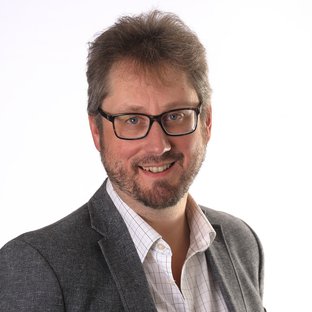
Professor Patrick Hayes
Biography
Born in Montreal, Canada, I grew up in the UK near London. As a boy I enjoyed reading all manner of books in a completely indiscriminate way—from Agatha Christie to Isaac Asimov, via Douglas Adams. But I think the one that did most to make me want to study literature at university was Joseph Heller’s Catch-22, which I re-read several times when I was a teenager. As well as being hilariously funny, it seemed to reveal something at once startlingly new and yet completely recognizable about the world. I sometimes wonder if everything I now do by way of research is, in some sense, a working out of what I originally found so captivating about Heller’s writing.
Research Interests
The question that interests me most is how and why literature comes to matter, both in our personal lives and in the wider public world around us.
My first two books focused on modern fiction, and addressed this question in contrasting ways. The first, J.M. Coetzee and the Novel (2010), explored how literature can acquire public moral and political significance, by considering the work of a writer who has done more than most to face up to the major crises of our times, from racial injustice to animal welfare. The second, Philip Roth: Fiction and Power (2014), took a different direction, asking how, and to what ends, literature can help us escape the unilluminating and entrapping forms of moral language which command such power in the modern world. I’ve come to see these books as two sides of an ongoing argument with myself about how to understand literary value—in a way that distantly resembles what George Steiner did (albeit in his case with much greater wit and brevity) in Tolstoy or Dostoevsky.
My recent work has again moved in two different directions around the same broad question. I’ve been investigating the long history of ‘why literature matters’ by thinking about how philosophers from Plato to Wittgenstein have reflected on the significance of literature and the arts. In the summer of 2016, I organised a symposium at St John’s College on the relationship between literature and philosophy; this led to Beyond the Ancient Quarrel (2018)—a collection of essays by a range of contemporary philosophers and literary critics, which borrows its title from the claim Socrates makes in the Republic that ‘there is an ancient quarrel between poetry and philosophy’. My other recent project, The Oxford History of Life-Writing: Postwar to Contemporary (2022), brings philosophical theories of selfhood into dialogue with the most personal kinds of writing—everything from autobiographies, diaries, and journals, to blogs and social media websites. Here I explore what is at stake in the way life-writing has become such an important part of the cultural landscape. I consider the legacy of psychoanalysis, changing ideas about what counts as an authentic self, debates about the nature of sexual identity, feminist exemplary writing, the conception of identity as multicultural or intercultural, the quality of intimacy in memoir writing, multilingualism and self-expression, testimony narratives and the politicisation of memory, the rise of literary celebrity, and the impact of social media. Here is a link to an interview about the book.
My current work is on the history and ongoing significance of aesthetic education—or what Henry James called ‘the appreciation of life itself’. What interests me here is the way in which a nineteenth century debate about what it means to become most richly aware of life as such—which was often posed in opposition to various kinds of moral and religious dogmatism—becomes reimagined in the twentieth century and in contemporary life more generally.